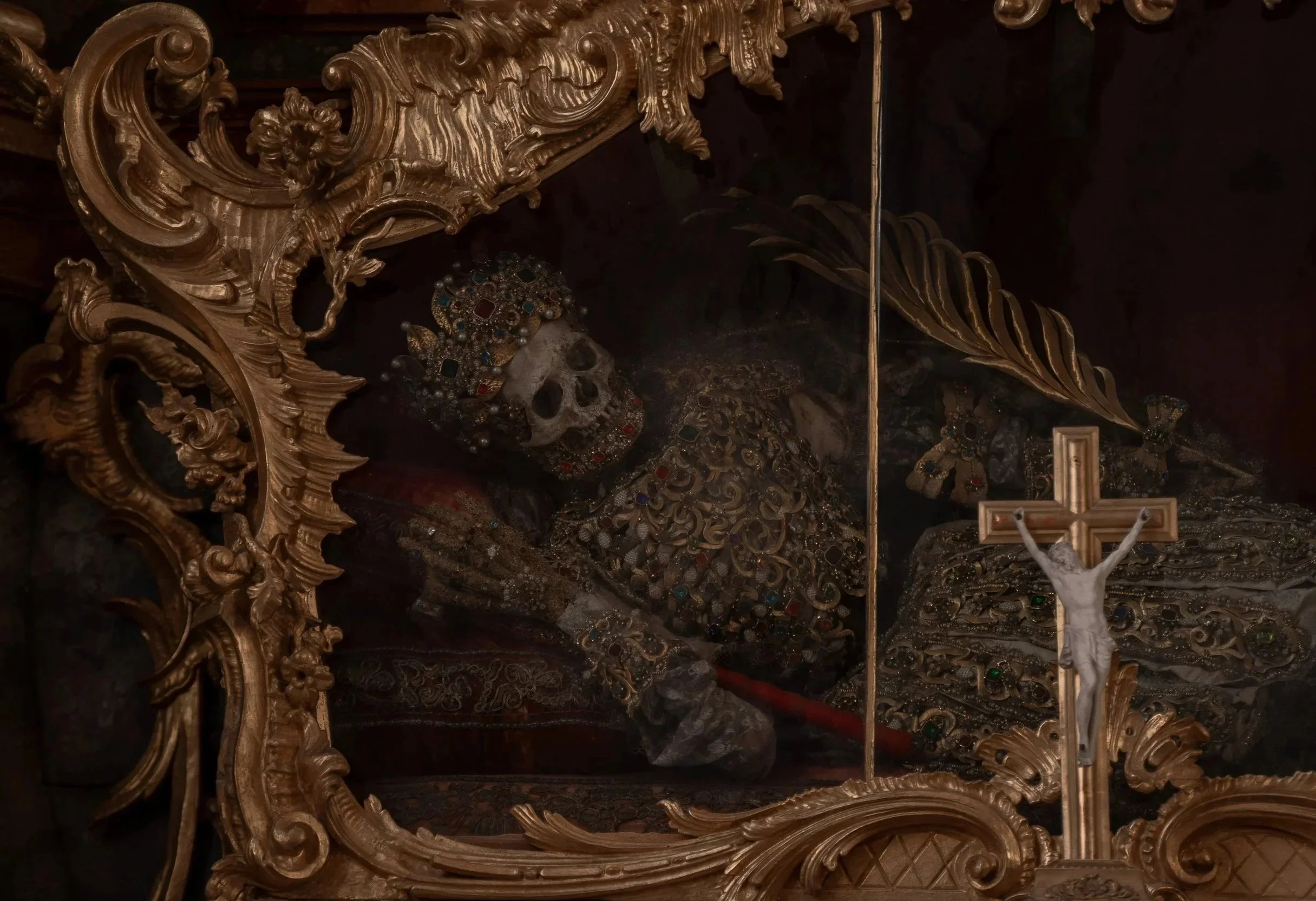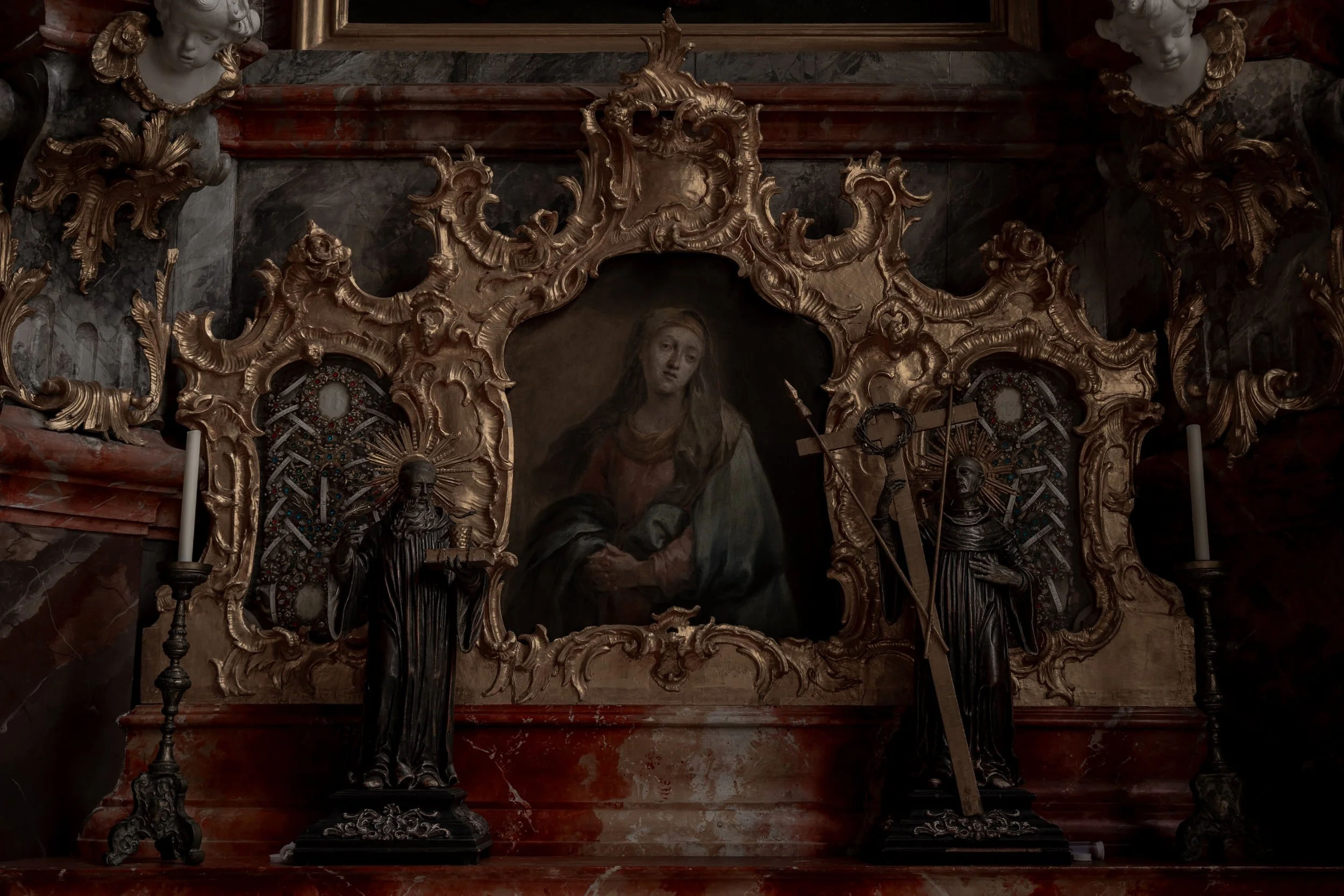Fürstenfeld Abbey






Just a short train ride from Munich lies the serene town of Fürstenfeldbruck, home to the magnificent Fürstenfeld Abbey. At first glance, it may appear to be yet another picturesque Bavarian church, but beneath its ornate façade lies a tale of royal scandal, penance and macabre beauty.
Founded in 1256 by Duke Louis II of Bavaria, the abbey was born out of remorse. The Duke had falsely accused his first wife, Marie of Brabant, of adultery and ordered her execution. Wracked with guilt, he established the original Cistercian abbey in Seldental as an act of atonement. In 1263, it was relocated to its current site, becoming a spiritual bastion for the powerful Wittelsbach dynasty.
In the 18th century, Fürstenfeld Abbey underwent a dramatic transformation. Architects Giovanni Antonio Viscardi and Johann Georg Ettenhofer reimagined it in the late Baroque style, pushing artistic boundaries with bold design and theatrical flair. The church’s interior is steeped in rich artistic expression included soaring ceiling frescoes by Cosmas Damian Asam, exquisite altars and stucco work by Egid Quirin Asam and monumental statues of the abbey’s founders sculpted by Roman Anton Boos. Often referred to as the “Bavarian Escorial,” it rivals the grandeur of Spain’s royal monastery.
A striking number of confessionals line the church walls, underscoring the theme of repentance that defines its origin story. However, perhaps the most hauntingly beautiful elements are the two catacomb saints: Saint Hyacinth of Caesarea and Saint Clemens, enshrined in glass reliquaries within the gilded side altars. Adorned with jewels, silks and gold, their remains are not mourned but celebrated, transforming death into a divine spectacle. These striking relics embody the Baroque fascination with mortality, serving as vivid memento mori that invite awe rather than sorrow.
Beyond the church, the abbey’s tranquil grounds offer a peaceful escape. Ivy-clad facades and winding river paths evoke a sense of romantic decay. There’s also a small museum on-site, though if time is short, you might prefer to skip it and head straight to Klosterstüberl a charming beer garden by the river serving hearty Bavarian dishes under leafy canopies.
Address: Fürstenfeld 7, 82256 Fürstenfeldbruck, Germany
